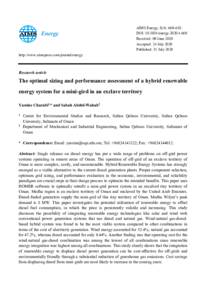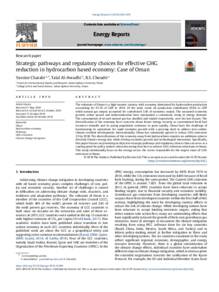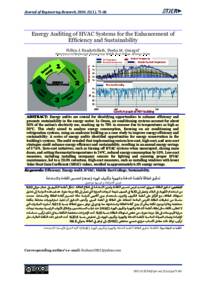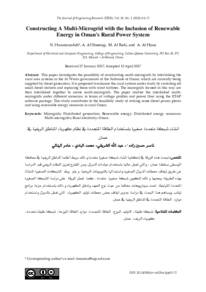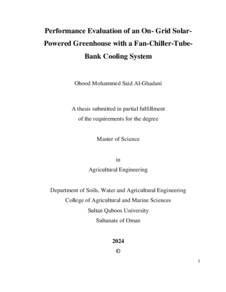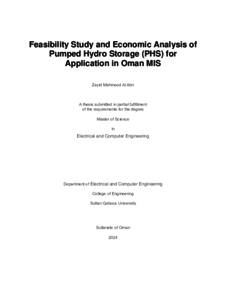Document
The optimal sizing and performance assessment of a hybrid renewable energy system for a mini-gird in an exclave territory.
Identifier
DOI: 10.3934/ENERGY.2020.4.669
Source
AIMS Energy. v. 8, 4, p. 669-685
Contributors
Abdul-Wahab, Sabah., Author
Country
United States.
Publisher
AIMS Press.
Gregorian
2020-01-01
Language
English
English abstract
Single reliance on diesel energy has put a wide range of problems on off-grid power systems operating in remote areas of Oman. The operation of off-grid of an exclave territory of Oman is more complex, costly, and unsustainable. Hybrid Renewable Energy Systems has strongly emerged as a viable alternative to the current diesel generation plants. Proper component selection, optimum grid sizing, and performance evaluation in the economic, environmental, and reliability paradigms are crucial steps in their design process to optimize the intended benefits. This paper uses HOMER software to optimally retrofit a mini-grid power system in an excalved tiny territory of Oman. Medha region is an exclave territory of Oman and enclaved by the United Arab Emirates. Diesel-fueled generators supply the mini-grid of this tiny territory of Oman. Medha Wilyat's peak demand is 8 MW. This paper investigates the potential utilization of renewable energy to offset diesel fuel consumption, in which the price is persistently volatile and increasing. This study discusses the possibility of integrating renewable energy technologies like solar and wind with conventional power generation systems that use diesel and natural gas. Wind-natural gas-dieselbased hybrid system was found to be the most viable system compared to other combinations in terms of the cost of electricity generation. Wind energy accounted for 52.4%; natural gas accounted for 47.2%, whereas diesel accounted for only 0.44%. Another finding was that operating cost for the wind-natural gas-diesel combination was among the lowest of all combinations since renewable energy integration was highest among all combinations. This study clearly shows that the integration of renewable energy to displace diesel power generation can be cost-effective for off-grids and environmentally friendly through a substantial reduction of greenhouse gas emissions. Cost savings from displacing diesel from mini-grids are most likely to increase in the coming years.
ISSN
2333-8326
Category
Journal articles

